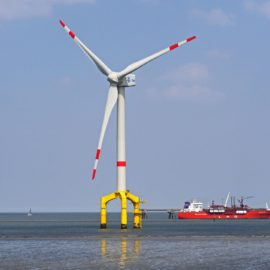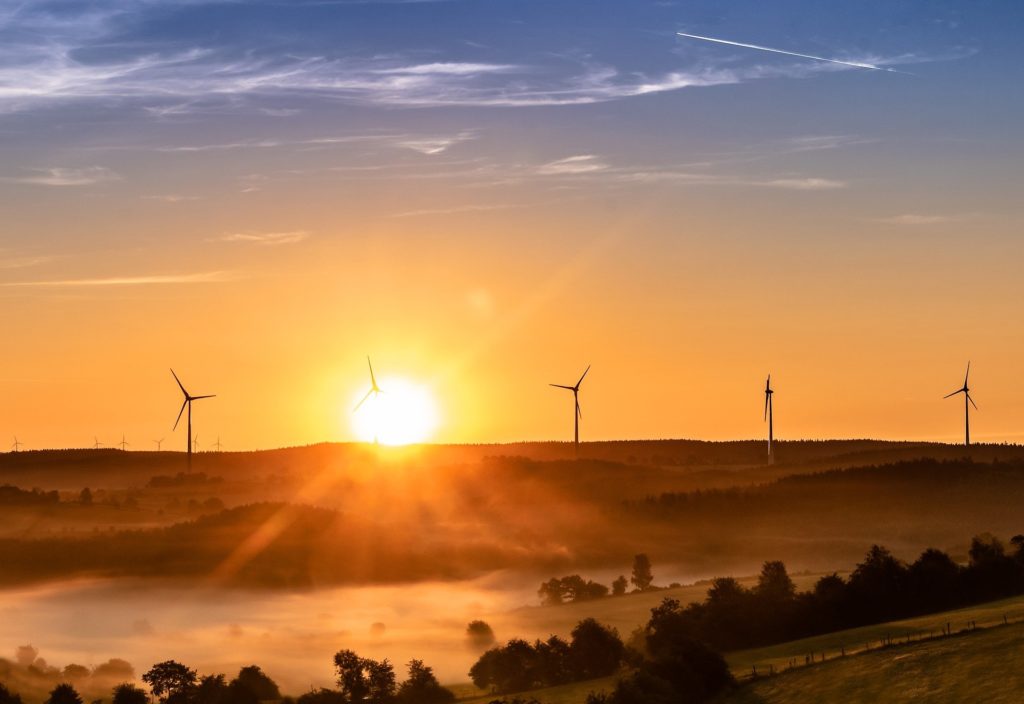
The Advocate took a survey and what is desired to reduce greenhouse gases, the wind and the sun. Yes, solar and wind power are the clear winners.
As the world tries to rein in greenhouse gases and avoid catastrophic heat, Louisiana should increase its investment in solar and wind power, according to The Times-Picayune Power Poll. Those were the top choices in this month’s survey, with solar No. 1 and wind No. 2. The third-ranked option was capturing and storing carbon emissions from the burning of oil and gas products. Here are the weighted results of the survey:
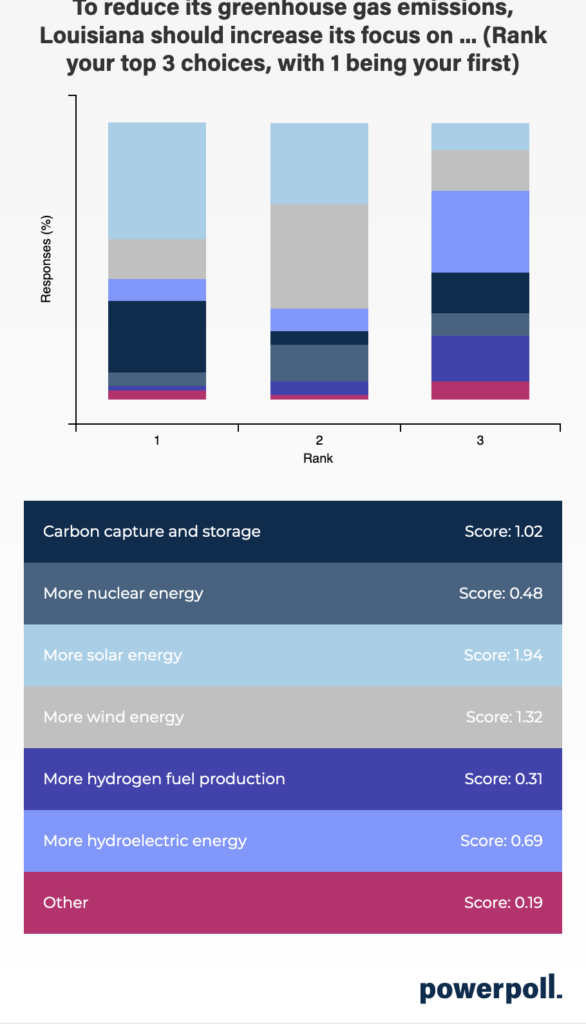
Some of the comments received:
“More dependence on solar is critical,” said Sandy Rosenthal, founder and president of levees.org. “And it’s great for hurricane events. At my home, there’s solar panels connected to a Tesla Powerwall – 2 batteries which each store about 13 KWH. There’s an instant switchover when the grid goes out. “During extended power outages, there’s enough power for lights, fridge, freezer and a hyper-efficient AC unit that covers two bedrooms. During normal times, the solar generates about 45 to 50 KWH on a sunny day, which is used to power the house and top off batteries. Batteries supply at night and on rainy days.” Advocates hail solar’s environmental benefits as well as its potential to reduce a property owner’s power bill. But solar panels are expensive to buy, and they don’t power a house when commercial electricity fails unless, like Rosenthal, one buys the batteries, too.
Wind power also received positive comments as did other solutions many in trials in the state.
Wind energy is another growing source of power, moreso in Europe than in the United States. But some Louisiana contractors with deep experience in oil and gas are making the transition to serving the wind sector. Carbon capture and storage is being promoted by the oil and gas industry, and others such as Gov. John Bel Edwards, who says no state is more at risk of climate change than Louisiana. This option reduces greenhouse gas emissions, to be sure, by pumping carbon dioxide underground. But some environment advocates assert it’s an unproven technology that, regardless, does not wean the state from fossil fuels. Economists might say that the way to wean Louisiana fossil fuels is to tax carbon emissions. That’s under consideration in Washington, and almost half of the Power Poll respondents favor a federal tax.
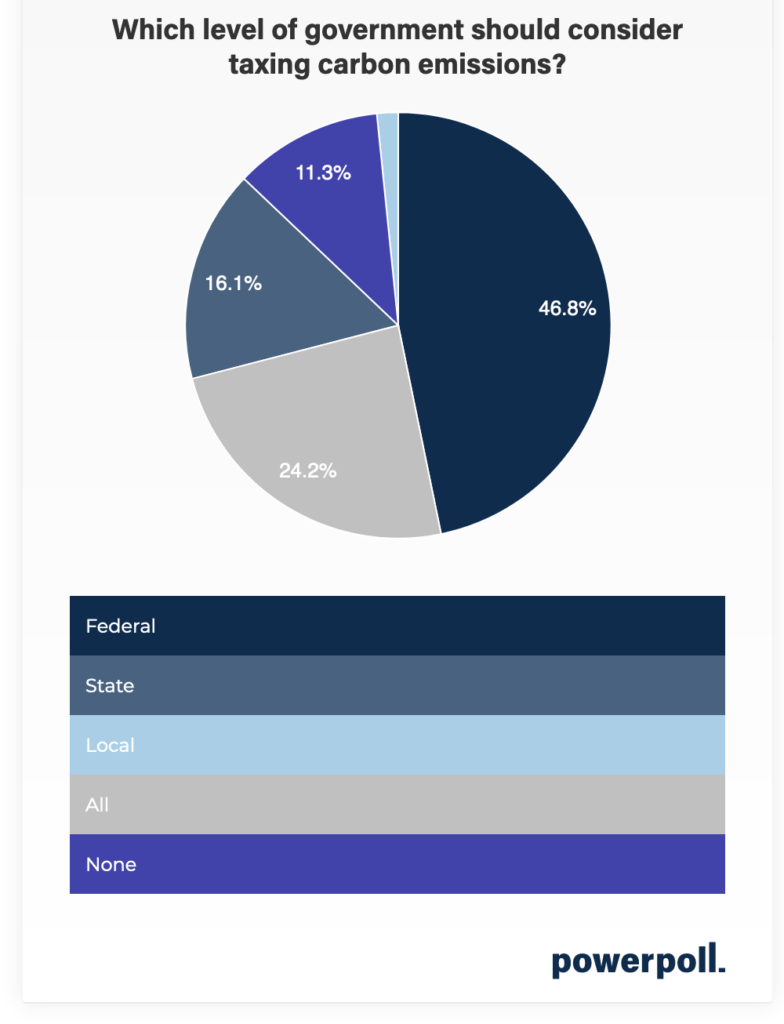
The political leaders need to step up and do something. The governor went to COP26 and so shows his desire to help.
“It will be interesting to see how and which political leaders step up to move Louisiana’s oil-driven economy to embrace more alternative energy,” said Keith Esparros, WWL television’s news director. “It’s a very heavy lift to make that change and will be unpopular among a lot of people. Finding the best path to more environmentally friendly energy production will be key but will not be without pain.” If oil and gas represent the old economy, tech might be the new economy. New Orleans cheered big news this fall when two of its homegrown tech companies were sold, Levelset for $500 million and Lucid for $1.05 billion, making Lucid the state’s first “unicorn.” What can be done to grow the tech sector? One third of Power Poll respondents want more tax incentives for startups, and almost as many want more public money spent on colleges and universities.
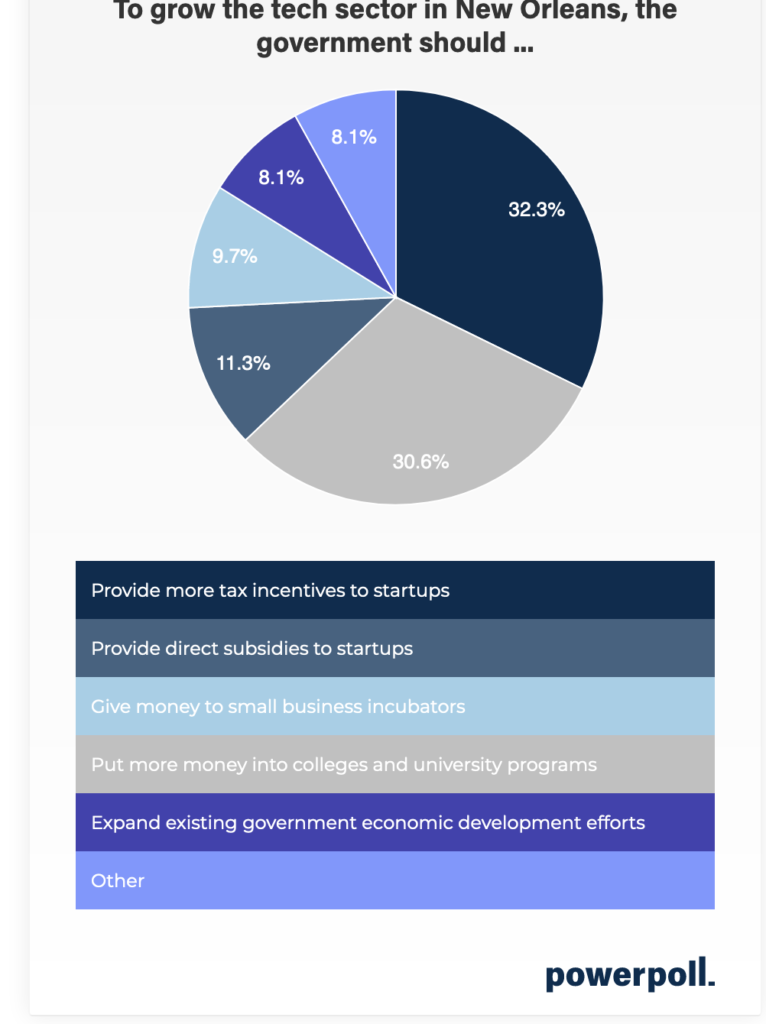
Investments will be needed and education is an important one.
“Investment in higher ed will be critical,” said Allison Plyer, chief demographer at The Data Center. “Human capital is the best predictor of regional economic growth. Research has shown that labor flocks to places that have high-quality labor and educated cities grow faster (oftentimes despite lack of amenities). “In the U.S., states have historically been the primary force behind funding public higher education. More than incentives or incubators, affordable, high-quality, higher education is the greatest predictor of economic growth. That’s what California invested in, and that’s why they are so far in front on tech.” Conducted online Monday through Thursday, The Times-Picayune Power Poll survey is not a scientific inquiry. But because it asks questions of the top Jefferson and Orleans parishes influencers in business, politics, arts, media, nonprofits and community affairs, it does afford and non-partisan insight into the thoughts and opinions of those who steer the region. Of 356 Power Poll members surveyed this week, 62 voted, for a participation rate of 16.5%.
That statement is important and while it is not a scientific study as the subjects have the choice to respond or not and the respondents were chosen, it still gives a valid picture.


